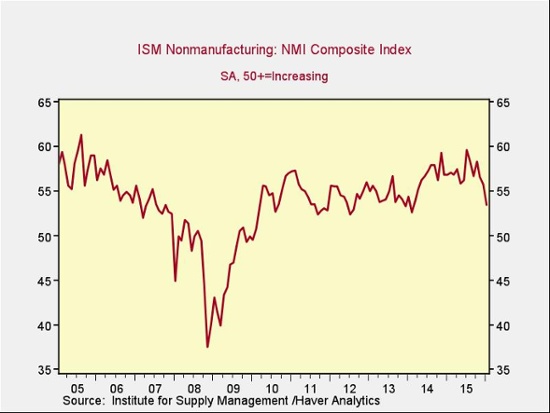by Grayson Witcher, and Jason Brink, Mawer Investment Management, via The Art of Boring Blog
What does cloud technology have to do with investing?
Chances are if you’re reading this, either on your computer or on your mobile device, you’re already familiar with cloud computing. If you’ve heard of it but the concept remains a bit nebulous, the cloud refers to computing and data services that enable companies to store data remotely and retrieve it through the internet. For you, it means being able to work remotely and access your data, email, photos, or software anywhere you go, on any device with an internet connection. For businesses, it means increased efficiencies and cost savings in information management since they are no longer required to own their own servers to store and process data—instead of having on premise IT infrastructure, companies can lease capacity from third parties, which has opened up a vast new frontier of application and accessibility. Just as the shapes of clouds can quickly morph from a witch’s face into a tea kettle, cloud computing is constantly shape-shifting as new applications and demands emerge and innovation continues to change what is possible.
For investors, cloud computing is a big deal, and a meaningful trend worth understanding in an increasingly connected world. As the cloud gains momentum, there are several changes to business models and to the competitive landscape in general that we believe are worth watching:
Productivity:
The cloud’s success and the success of those who use it exist in its anywhere, anytime functionality. In terms of productivity it allows for more efficient collaboration, a more efficient workforce, and a more efficient IT infrastructure. Team members can collaborate from across the world and see their work completed in real time. Cloud technology enables field employees instant access to company files with the ability to manage processes and execute transactions without having to wait until they’re back in the office. An increasing number of employees now feel empowered to work remotely from home on their connected devices. This modern accommodation for a better work/life balance inspires many to work extra hours from the comfort of their homes. Cloud technology has also helped companies boost productivity by enabling them to outsource their IT maintenance to a specialized, better equipped, and often more secure third party on a pay as you go basis. This allows companies and employees to focus on what they do best, while the cloud company deals with the IT headaches.
Innovation:
It seems very likely that cloud technology will continue to speed up the pace of innovation. Much of that relates to a tighter feedback loop, which is so much faster than it was a decade ago. Feedback loops may appear as online reviews from users on sites like Amazon or Google Apps, where people can read what other people have said about a particular app, product, or service. Because developers read these comments too, companies are able to get much quicker feedback than when they had to just rely on focus groups or help desk reports to get this kind of information.
This immediate feedback has become a powerful commodity for those choosing to implement user information to improve their goods and services. Now, instead of stopping your workflow or spending an hour calling a help desk, cloud technology enables companies to observe what you’re doing—not in an invasive, Big Brother way, but in terms of how you’re actually using their products. For example, if Google sees that you’re frequently attaching large files in gmail and they’re getting pushed back, they can react accordingly in a timely manner.
Big companies like Google also have a massive scale advantage due to the sheer volume of information and data they collect. This can pose a barrier to entry for smaller companies or companies late to the cloud game. In addition, because Google has some of the best and most plentiful data, they tend to attract some of the best engineers and scientists. By attracting the best people, their odds of developing cutting edge advances in computing rise.
Development cycles
With business enterprise software, such as an Oracle database, developers can observe their users’ experiences and therefore offer faster development cycles. They can see that they’re using some features all the time and others very little, or that they’re using these features but it’s taking too long and the system is getting hung up. If within a week of a product launch a company sees the same problem occur 5,000 times, they’re able to resolve this problem that much faster and better based on this feedback.
So instead of guessing what people want, you can know exactly what needs to be done and quickly make the correct changes. Instead of waiting through an upgrade cycle of three years, companies can roll out fixes to all of their users every three months or less. The cloud makes the entire upgrade process less complicated, faster, and cheaper for service providers and users alike. This, too, becomes a competitive advantage.
Asset utilization and cost savings
The cloud effectively offers companies the flexibility of two options: they can either operate with less staff and focus on doing the right things, or they can maintain the same staff and simply do more things faster with added functionality. Both methods reduce costs.
For example, the Oracle cloud-based system is said to provide approximately 30% savings compared to on premise alternatives. Oracle is poised to double their revenue because they are not only able to sell software, but they also provide the facility, the hardware, and the people. This makes it a win-win: cheaper cost, better asset utilization, more efficiencies and lower costs for both the customer and the enterprise.
Risks:
Security and privacy remain concerns that may be tempering mass adoption of the cloud for both consumers and businesses. When you store data in the cloud you’re trusting a third party to keep it safe. There is also the question of legal ownership of the data. For example, if a user stores data in the cloud, can the cloud provider profit from it?
The obvious technological risk related to the cloud would be interrupted connectivity. Like any server, even the biggest and best in cloud services experience outages and network issues. Many businesses rely on uninterrupted connectivity to cloud resources, but cloud and internet providers cannot always guarantee uptime. To mitigate this risk, more companies are running multiple internet connections with automated failover technology.
The future of cloud computing
The cloud market is rapidly evolving, and vendors will need to keep up with these changes in order to remain competitive, particularly in the mobile arena. According to statista.com, in 2014 mobile cloud traffic accounted for 81% of all global mobile data traffic. This includes video and audio streaming, online gaming, social networking, web browsing and online storage. This number is projected to rise to 90% in 2019 at a compound annual growth rate of 60%.
While the cloud serves as a colossal technological win for society as a whole, it will no doubt have a direct negative impact on those that traditionally did this work, such as database administrators and specialized consultants. On a company level, there will inevitably be winners and losers. While the benefits are huge for enterprise companies like Oracle and Google, new entrants or those with smaller databases either won’t have the same depth of user information or will have to draw from a narrower client set. Those that moved to the cloud early may benefit the most from their information stockpiles, whereas others who haven’t fully made the transition may be stuck in the old on premise system, to the point where they get further behind the pace of innovation and it eventually becomes too late for them to catch up.
Our approach to cloud based computing is one of awareness and risk mitigation. We ask ourselves, if the pace of innovation does speed up, who could be at risk? In the context of finding well managed wealth-creating companies for our portfolio, we look for companies that benefit from the cloud and avoid those that we believe are at risk from losing out.
With holdings already in Google, Oracle, and Intuit (small business accounting software), we seek to own companies with a competitive advantage that we think benefit from this theme. What we’re not doing is moving into speculative companies hoping that they make money. For us, that would be like gazing up at the sky indiscriminately and waiting for that dog-shaped cumulus to turn into a pot of gold.
This post was originally published at Mawer Investment Management















